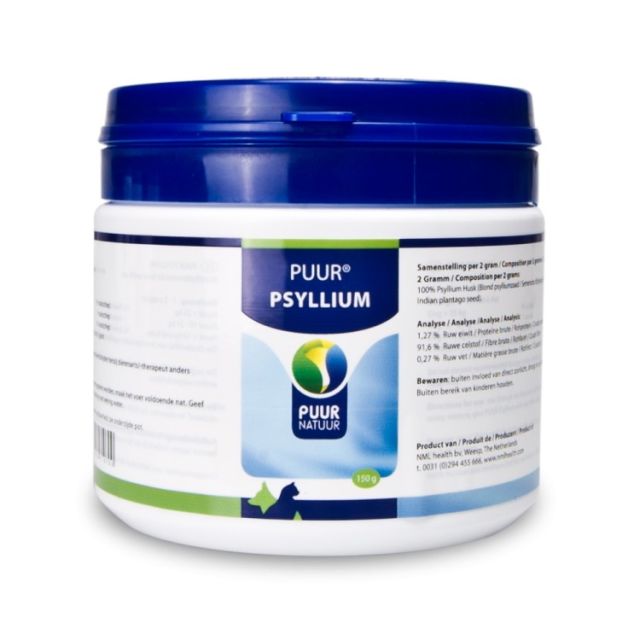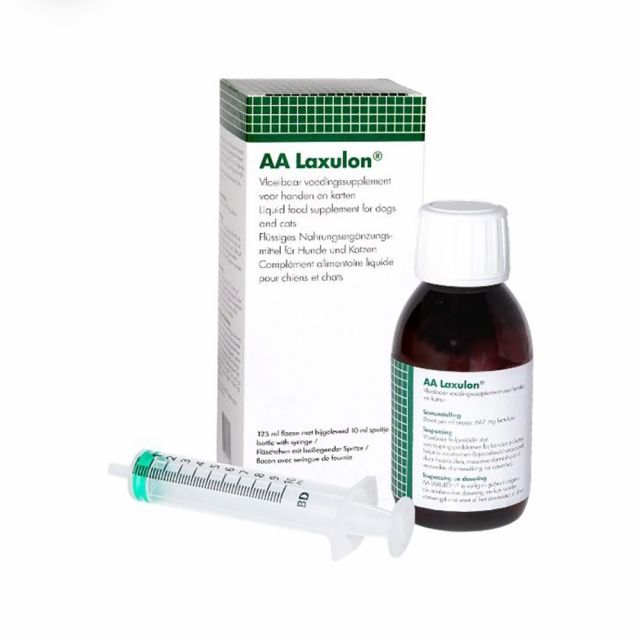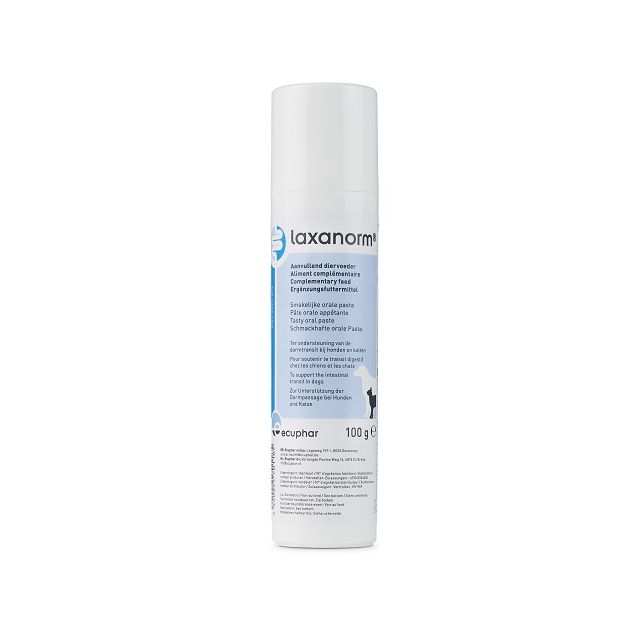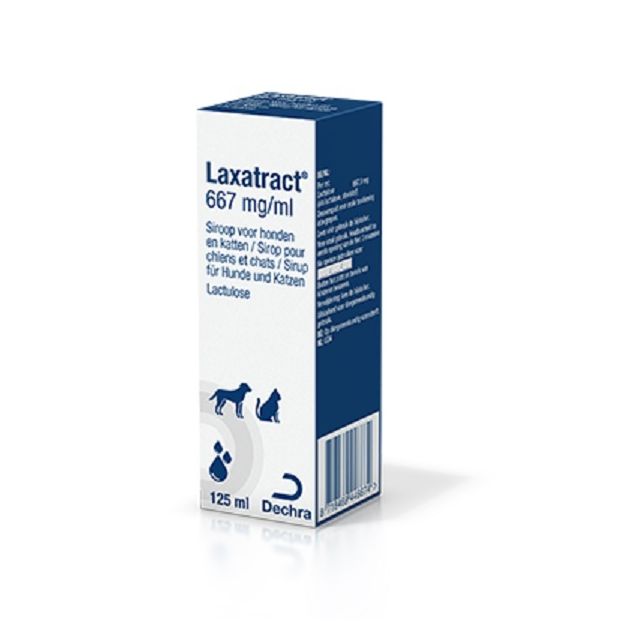Constipation in the cat
If your cat cannot defecate or has constipation, it can be very uncomfortable and painful. Fortunately, this condition can largely be prevented and often treated in its early stages with measures such as dietary changes. Pharmacy4pets offers a wide range of products to support your cat's digestive system and bowel movements.
What is constipation?
Constipation, also known as obstruction or obstipation, makes it difficult for your cat to defecate. Your cat may have difficulty or may defecate less frequently than normal. Often, passing stool is painful. When stool remains in the intestines for too long, it dries out and becomes harder, making defecation even more difficult and painful.
Causes of constipation in cats
There are several reasons that can make defecation difficult and lead to constipation. We have listed the main causes for you.
Aversion to defecation
If a cat doesn't like using the litter box, for example, because it's dirty, too small, or in a busy location, she may hold it in longer, leading to constipation over time. Cats generally prefer to urinate and defecate in separate boxes, and the rule of thumb is to have as many litter boxes in the house as the number of cats plus one. Previous unpleasant experiences in the litter box (pain, being chased away by children or other pets) can also cause your cat to avoid using it. If your cat normally defecates outdoors and cannot go outside due to bad weather or because you're away for an extended period, that can also be a reason for withholding stool.
Pain during defecation
Older cats with arthritis often have difficulty defecating because it simply hurts to assume the correct position or strain. Inflammations, tumors, or polyps in the large intestine or anus can also cause pain during defecation.
Narrowing of the large intestine, rectum, or anus
In cats with poorly healed pelvic fractures or scar tissue in the intestines, as well as in cases of tumors or other space-occupying processes such as hairballs or ingested foreign objects, an obstruction can occur.
Dehydration
If a cat doesn't drink enough water, the intestines will extract moisture from the stool, causing it to dry out. This can also happen in conditions where urine is not properly concentrated, and cats urinate a lot, such as in chronic kidney disease. Constipation is often seen in older cats with kidney disease.
Megacolon
In megacolon, the muscles of the large intestine become relaxed and stretched. As a result, the large intestine cannot contract properly, causing stool to remain in the intestines for a long time and, due to the stretching of the intestine, it can become very large (mega = large, colon = large intestine). This condition can be the result of prolonged constipation or can occur spontaneously, becoming the cause of an obstruction.
Other conditions
Constipation can also occur in cats with an overactive thyroid gland, neurological damage from an accident, abnormalities in blood salt levels, or a perineal hernia (weakening and rupture of the pelvic floor muscles). Very young kittens can develop constipation if defecation is not stimulated by licking or rubbing the abdomen and anus.
Symptoms of Constipation
The main symptom of constipation is, of course, less frequent, difficult, or painful defecation in your cat. Here's what you can observe in your cat:
- Straining while trying to defecate.
- Visiting the litter box more frequently.
- Expressing pain (growling, meowing, hissing) in the litter box.
- Excessive licking of the hindquarters.
- Passing very small, hard stools or abnormally large stools, sometimes even diarrhea.
- Defecating outside the litter box.
- Vomiting.
- Reduced or no appetite.
NB: The above-mentioned symptoms can also occur with bladder inflammation or even a blockage of the urethra in male cats, for example, due to bladder stones. A urethral blockage is life-threatening and is often confused with constipation. Therefore, always check if your male cat is urinating when it exhibits the above symptoms.
Treatment of Constipation in Your Cat
When treating an obstruction, it's important to address the underlying cause and alleviate your cat's discomfort. Here are some things you can do to help relieve or prevent (early-stage) constipation in your cat:
- Ensure an adequate supply of fresh drinking water or consider getting a drinking fountain.
- Provide fiber-rich food (fresh meat often contains little fiber) or add extra fiber, such as psyllium fiber in Iso-Gel.
- Prevent hairballs with an anti-hairball paste like Kat-a-Lax.
- For mild symptoms of early-stage constipation, laxatives can help, such as Laxulon.
- Ensure an adequate number of litter boxes, keep them clean daily, and place them in a quiet location.
- Investigate what type of litter your cat prefers.
- Help maintain the quality of stool with probiotics.
- Contact your veterinarian if your cat exhibits clear symptoms of constipation.
In cases of severe or long-standing constipation, it is often necessary to have the blockage resolved by a veterinarian. They will administer sedation and introduce a lubricated fluid into the large intestine to manually reduce and remove the softened and liquefied stool through the abdomen, then evacuate it through the anus. Cats with constipation often receive a fluid infusion to prevent dehydration, pain relievers, and a laxative. Usually, dietary advice is also provided. Depending on the underlying cause, additional treatments may be recommended. In the case of a megacolon or perineal hernia, surgery is usually advised.
The prognosis for a cat with constipation is generally good. However, dietary measures such as extra fiber and adjustments to the cat's environment are often necessary to help prevent the problem from recurring. Pharmacy4pets is happy to assist you in maintaining your cat's digestive health as best as possible. If you have any questions about our products or about constipation in cats, please contact us.







